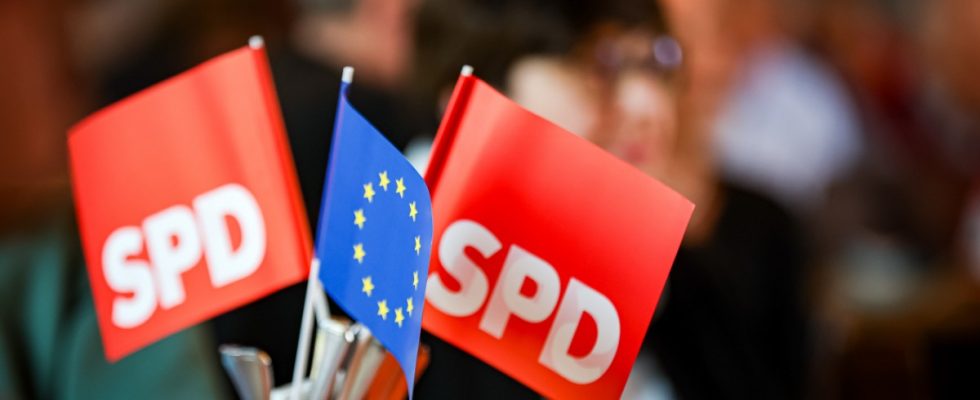Christian Köning will continue to head the Munich SPD for the next two years. The members confirmed their 35-year-old city boss on Saturday at the annual party conference with 96 of 108 votes. Köning ran unopposed. With the result of 89 percent of the vote, he not only remains the party leader, but he also consolidates his position as one of the most powerful men in the Munich SPD. Since November 2023, Köning has also led the parliamentary group in the city council with Anne Hübner.
“I’m thrilled, a wonderful election result,” said Köning on the sidelines of the party conference in the pub at Bavariapark. His second term in office will include three important elections that could decide the importance of the SPD in Munich for a long time: the European elections on June 9, 2024, the federal elections in autumn 2025 and, above all, the local elections in Munich six months later. Köning described mobilizing his own party and potential voters as one of the “central challenges” for the next two years.
“That’s what we need”: Christian Köning was re-elected as city boss without any opposition.
(Photo: Leonhard Simon)
In his speech to the delegates, he gave an outlook on how he wants to position the Munich SPD in the coming election campaigns: as a justice and progress party that makes life better for everyone in Munich.
He placed a strong focus on economic policy. It shouldn’t just be about “the big companies and the big digital corporations”, but also about jobs in local industry and crafts. When it comes to restructuring the economy, he sees a lot of “actionism with regard to the environment”, but when it comes specifically to the transformation, things are very quiet. “That’s what we need.”
According to Köning, this also applies to the second focus that he wants to continue to focus on in Munich. “It needs to be fairer in many places.” The SPD ensures this, for example, with its commitment to free kindergarten places and affordable care in crèches and after-school care centers or with its commitment to tenants.
In order to continue to work for the people of Munich in crucial areas, the SPD urgently needs to achieve better election results than in the recent state elections, for example: 8.6 percent across Bavaria.
“We know the result,” said the newly elected state parliament member Katja Weitzel, who reported to her colleagues at the party conference about the work in the first months of the new legislative period. The result was difficult for the SPD, the situation was difficult. “We have to fight for five years to ensure that the result is clearly better.”
In his review of the first two years as chairman of the Munich SPD, Köning also acknowledged, with reference to the state elections, that “not everything that the city association had set out to do was successful.” They didn’t manage to prevent this defeat, also because they couldn’t manage the “internal mobilization of the party,” said Köning.
The new board will work on the ability to campaign. For the European elections, the SPD must above all ensure that “we succeed in making it clear that the SPD stands for a social Europe”. And as a result, to get potential voters to actually cast their vote. Voter turnout in European elections is traditionally very low. (Ten years ago it was 48.1 percent across Germany; in 2019 it was almost 62 percent.)
The SPD has to manage all of this in a difficult environment. “The poll numbers are not great at every turn,” said Köning. The local elections in 2026, which the SPD could now look forward to more hopefully than a year ago, will be much more important, especially in Munich. Since the Free State is lifting the age limit for municipal offices, Mayor Dieter Reiter can and wants to run again. Köning also sees it as an advantage to go into a decisive election with the incumbent bonus. Reiter is “the personification of the people’s party, always on an equal footing with the people.”
In the next two years it is now important to draw up an attractive list of candidates for the city council and adopt a local election program. Köning will have to rely on a partly new team on the board. City councilor Micky Wenngatz and mayor Verena Dietl, both of whom were most recently deputy chairmen, no longer stood.
“I was on the city board for over 20 years,” said Dietl on the sidelines of the party conference. The networking between the party and the parliamentary group is now given in Köning’s person, and she already knows how she could use the freed up time. “I can become even more present as mayor. The SPD also needs me very much in this position.”

